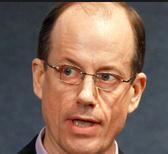
Thomas Drake is a former senior executive of the U.S. National Security Agency (NSA), a decorated United States Air Force and United States Navy veteran, and a whistleblower. In 2010 the government alleged that Drake 'mishandled' documents, one of the few such Espionage Act cases in U.S. history. Drake's defenders claim that he was instead being persecuted for challenging the Trailblazer Project. He is the 2011 recipient of the Ridenhour Prize for Truth-Telling and co-recipient of the Sam Adams Associates for Integrity in Intelligence (SAAII) award.
On June 9, 2011, all 10 original charges against him were dropped. Drake rejected several deals because he refused to "plea bargain with the truth". He eventually pled to one misdemeanor count for exceeding authorized use of a computer; Jesselyn Radack of the Government Accountability Project, who helped represent him, called it an act of "civil disobedience."
BACKGROUND
William Binney and Thomas Drake, are former high-ranking NSA officials who found out early about NSA's domestic surveillance program and opposed it through proper channels.
Binney was a senior cryptographer. He was also NSA's ranking expert in signal "externals" -- much of which they now call digital "metadata," something you've heard a lot about lately. He designed a breakthrough subsystem that, to his horror, became a critical component of NSA's domestic surveillance system.
Binney left NSA and reported the domestic surveillance to Congress. He was also one of four persons asking the Defense Department Inspector General to investigate rampant waste, inefficiency and unethical conduct in NSA's modernization program. Drake helped the IG from inside NSA. After a 2-1/2 year investigation, their allegations were corraborated, but the findings were kept secret.
For these activities on behalf of citizens and taxpayers, Binney, Drake and three others paid dearly.
In 2007, they were raided. The FBI was investigating the 2005 leak of one part of the surveillance program to the New York Times. The investigation dragged on for years. Their clearances were permanently withdrawn despite their innocence, so they lost lucrative incomes. Legal bills mounted, in Drake's case reducing him from comfortable savings to indebtedness and resort to a public defender.
Drake was indicted on charges that the government knew to be false. He was threatened with 35 years in prison under the Espionage Act, in order to extract a guilty plea. Under great pressure, he repeatedly refused to do so. He was accused of possessing five classified documents, but pre-trial hearings showed that the documents in question had been classified retroactively in order to frame him. Four days before the trial, the government dropped all ten charges in the indictment. Drake pleaded guilty only to a misdemeanor "exceeding authorized use of a government computer".
After the trial, Drake mounted a public campaign against domestic surveillance and was soon joined by Binney.








